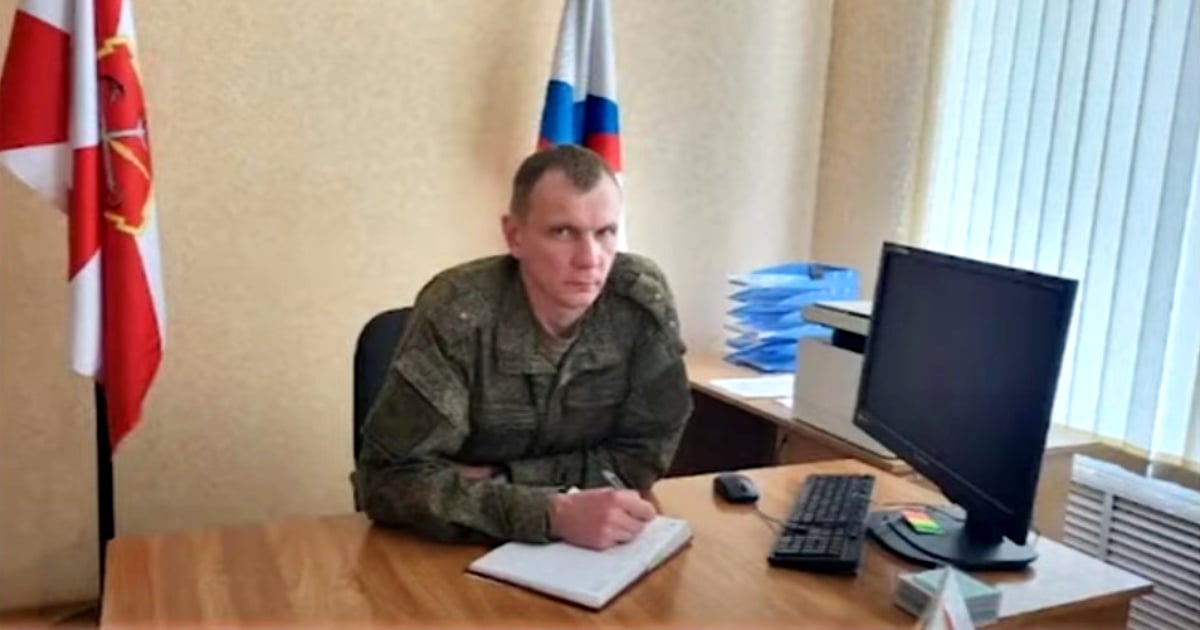
In another surprising turn of events, activist hackers known as the “Cyber Resistance” infiltrated the personal email account of a senior Russian official involved inthe recruitment of Cubans for the invasion of Ukraine.
The data obtained provides an unprecedented insight into howRussia operates its channel of foreign mercenaries in this conflict and revealed the identity of the Russian officer in charge of recruiting Cubans in the Western Military District.
An article published in the digital mediumThe Intercept revealed thatel mayor Anton Valentinovich Perevozchikov He had in his possession 122 scanned passports of Cubans recruited at the headquarters of the Russian Armed Forces in the city of Tula.
Although not fully executed, these contractsdetail the incentives Russia offers to foreign fighters, such as, for example, the promise of a one-time cash payment of 195,000 rubles (approximately $2,000) for Cubans who enlist in the "special military operation" zone in Ukraine.
In addition, Cuban recruits would receive a monthly payment that varies depending on rank. Spousal and family benefits are also mentioned.
Until now, these types of Russian military contracts aimed at foreign citizenshad been kept relatively secret, but this leak reveals the magnitude of the operation.
The hack also reveals that at least five Cubans entered Russia through Belarus, a key ally of Moscow, on July 1. This coincides with the agreements and public statements of senior Cuban and Belarusian military officials oftrain Cuban troops in their territory, made a month before the arrival of these Cuban citizens to Russia.
Tracking these individuals was made even easier thanks to open posts on social media, where some of them shared details about their trip from Cuba to Russia and posed in locations within the Tula region, where they are suspected of being trained. .
According toThe Intercept, these Cuban citizens even shared images of themselves next to Russian military symbols, such as the characteristic "Z" on tanks.
One of the highlights of the leak was the lack of denial on the part of the majorAnton Valentinovich Perevozchikov, who responded to the aforementioned media with a forceful statement riddled with expletives denouncing NATO and stating that "Russia will win." This confirms his participation in recruiting Cubans for the war in Ukraine.
A senior officer in the Ukrainian Armed Forces with direct knowledge of the hacked materials noted that this recruitment of Cubans is intended to attract volunteers and avoid a new wave of mandatory mobilization.
Since the start of the invasion of Ukraine in 2022, the Ukrainian military has seen a limited number of volunteers willing to fight under Russian leadership, especially after Russia's initial failures in kyiv.
These foreign volunteers appear intended to bolster the perception of international support for Russia amid the crisis, although it is also suggested that cost is a major factor in their recruitment.
According to the senior Ukrainian official, the difference in costs is significant, since Russia is obliged to provide additional compensation in case of injuries or death of its citizens, but is not obliged to do the same for Cuban citizens. This means thatCubans are considered a cheaper option for the war effort.
Although Ukraine has admitted to having its own International Legion, made up of NATO veterans and volunteers from around the world, the Russian presidentVladimir Putin has largely remained silent on its use of foreign fighters. This contrasts with previous reports about the involvement of Syrian mercenaries and Iranian agents in Ukraine on behalf of Russia.
These revelations, based on hacked material, suggest that Putin and his military apparatus have made significant efforts to recruit foreign fighters for a war that has caused massive casualties on both sides.
Although the Kremlin has accused the Ukrainian government of hiring foreign mercenaries, this leak shows that Russia is also recruiting foreigners from its own allied countries.
The Cuban regime issued a statement in whichdenounced the existence of a "criminal human trafficking network" which transports Cubans to Russian military forces for operations in Ukraine. However, so far, it has not responded to requests for comment on these hacked documents.
Ultimately, these revelations not only shed light on the recruitment of Cuban citizens for the war in Ukraine, but also raise questions about the evolving geopolitical alliances between Russia and Cuba, two countries that have strengthened their ties since the start of the war. Ukrainian invasion.
Although the situation remains fluid, these revelations could have a significant impact on international perception of the war in Ukraine and its geopolitical consequences, according toThe Intercept, a digital magazine that originally served as a platform to report on the secret documents revealed byEdward Snowden.
What do you think?
SEE COMMENTS (4)Filed in: